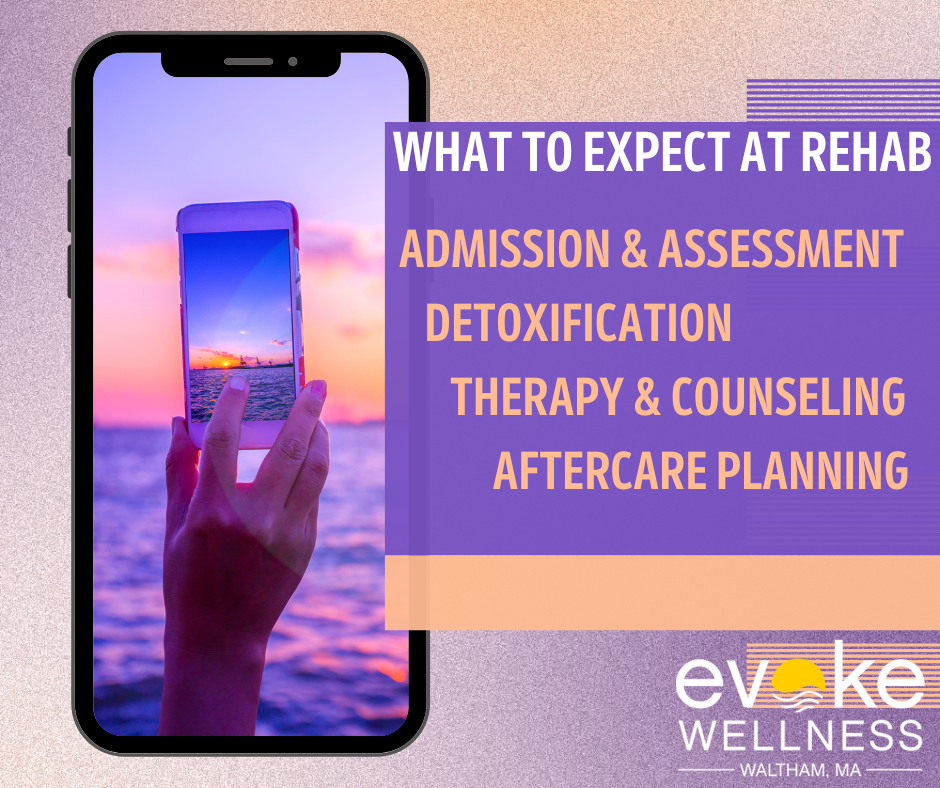Embarking on the journey of drug rehabilitation is a courageous step towards reclaiming your life. As you prepare to enter rehab, you may feel a mix of emotions – hope, anxiety, and uncertainty about what lies ahead. Understanding what to expect can help ease your concerns and set you up for success. This guide will walk you through the typical stages of drug rehabilitation, from intake to aftercare.
You’ll learn about:
- The admission process
- Detoxification and withdrawal
- Therapy and counseling options
- Daily routines and activities
- Family involvement
- Developing coping skills
- Planning for life after rehab
By knowing what’s in store, you can approach your recovery with confidence and determination.
Call us at (833) 287-7223 today or reach out online.
What is drug rehabilitation?
Drug rehabilitation, or “rehab”, is a treatment process to help individuals recover from substance use disorders and addictions. It aims to break the cycle of substance abuse through various therapies and support.
A Comprehensive Approach
Drug rehab takes a holistic approach, addressing the physical, psychological, social, and behavioral aspects of addiction. It helps patients develop coping mechanisms, build a sober support system, and ultimately regain control over their lives.
Customized Treatment Plans
Effective rehab programs tailor treatment plans to each individual’s unique needs, taking into account factors like the type of substance abused, duration of use, co-occurring mental health issues, and more. This personalized approach enhances recovery outcomes.
Which recovery program is right for you?
Inpatient vs Outpatient
There are two main types of rehab programs – inpatient and outpatient. Inpatient requires you to live at the facility full-time, while outpatient allows you to live at home and attend treatment sessions regularly.
Personalized Treatment
The best program will depend on your specific needs and situation. Things to consider include:
- Severity of addiction
- Co-occurring mental health issues
- Insurance coverage and cost
An addiction specialist can assess your case and recommend the most suitable option.
Evidence-Based Therapies
Look for programs that use evidence-based therapies proven effective in treating substance use disorders. Common approaches include:
- Cognitive-behavioral therapy (CBT)
- Contingency management
- Motivational interviewing
The program should also address life skills, relapse prevention strategies, and any co-occurring disorders.
Understanding the rehabilitation process
Admissions & Assessment
The first step is an intake evaluation. You’ll meet with counselors who assess your situation and needs. Be open and honest for the best treatment plan.
Detoxification
Depending on your circumstances, medically-assisted detox may be required. This rids your body of substances safely and manages withdrawal symptoms.
Therapy & Counseling
Individual, group and family therapy sessions are core components. You’ll explore root causes, develop coping skills and rebuild relationships.
Aftercare Planning
Before completing rehab, you’ll work on a plan for life after. This covers ongoing support, sober living, triggers to avoid, and relapse prevention strategies.
The rehabilitation journey is challenging but transformative. With professional guidance and perseverance, sobriety and healing are achievable goals.
What to expect in detox
Safe, Supervised Withdrawal
The first stage is detoxification or “detox”. This involves safely ridding your body of drugs and managing withdrawal symptoms under 24/7 medical supervision.
Typical Detox Timeline
Detox timelines vary based on the substance, level of use, and your physiology. Acute withdrawal generally peaks within 1-3 days but can last 1-2 weeks.
Managed Withdrawal Symptoms
Common withdrawal effects like nausea, anxiety, and cravings are carefully managed with medications and therapeutic support. The goal is a safe, humane process.
Focused on Your Health
Detox prioritizes your physical and mental stability. Proper nutrition, rest, and counseling help restore your well-being for further treatment.
Inpatient vs outpatient rehab programs
Inpatient Rehab
Inpatient or residential rehab provides intensive, round-the-clock care. You live onsite for 30-90 days with medical monitoring. This immersive approach removes access to drugs and alcohol while focusing solely on recovery.
Outpatient Programs
Outpatient programs allow you to live at home while attending scheduled treatment sessions. This provides more flexibility to maintain work/family obligations. However, it requires strong commitment as access to substances isn’t restricted.
Both paths can be effective, but inpatient tends to produce higher success rates initially. The right choice depends on your situation – addiction severity, triggers, support system and insurance coverage. Discuss options thoroughly with an addiction specialist.
Aftercare and maintaining sobriety
Continued Support
Completing rehab is a major milestone, but the journey doesn’t end there. Aftercare programs provide ongoing support and resources to help prevent relapse. Group therapy, individual counseling, sober living homes, and alumni networks offer a safety net.
Lifestyle Changes
Lasting sobriety requires lifestyle adjustments. Build a routine with healthy habits like regular exercise, nutritious eating, and enjoyable sober activities. Avoid high-risk situations by steering clear of people, places, and things associated with past substance use.
Relapse Prevention
Understand that relapse is a possible setback, not a failure. Have a plan for if cravings or triggers arise. Identify warning signs early and lean on your support system. With commitment and perseverance, you can maintain lifelong sobriety.
Drug Rehabilitation FAQs
What does drug rehab involve?
Rehab helps you recover through detox, counseling, and lifestyle changes. It addresses underlying issues driving addiction – providing tools to avoid relapse. Expect a customized plan focused on your needs.
How long does rehab last?
Programs range from 30-90 days on average. But rehab duration depends on your progress and severity of addiction. Longer stays allow more time for counseling and relapse prevention training.
Is drug rehab covered by insurance?
Many insurance plans cover at least part of rehab costs for substance abuse treatment. But coverage varies – so check your policy details before enrolling. Some luxury or holistic programs may require private pay.
Conclusion
As you embark on your journey to recovery, remember that drug rehabilitation is a process. It won’t always be easy, but the rewards are immeasurable. By knowing what to expect, you’ve taken the first step towards reclaiming your life. Here’s a quick recap of what you’ll encounter:
- Intake and assessment
- Detoxification
- Therapy and counseling
- Life skills training
- Aftercare planning
Each phase is designed to support your healing and growth. Stay committed to your goals, lean on your support system, and trust the process. With determination and the right help, you can overcome addiction and build a brighter, healthier future. Your new life awaits – embrace it with open arms.
Begin Your Journey with Evoke Wellness at Waltham
If you or a loved one is considering outpatient treatment, Evoke Wellness at Waltham invites you to contact us. Our compassionate team is ready to answer your questions, discuss your needs, and help you take the first steps toward recovery. At Evoke Wellness, you will find more than just a treatment program – you’ll discover a community dedicated to your wellness and success. Together, let’s embrace the journey to recovery and the promise of a new beginning. Call us at (833) 287-7223 today or reach out online.



